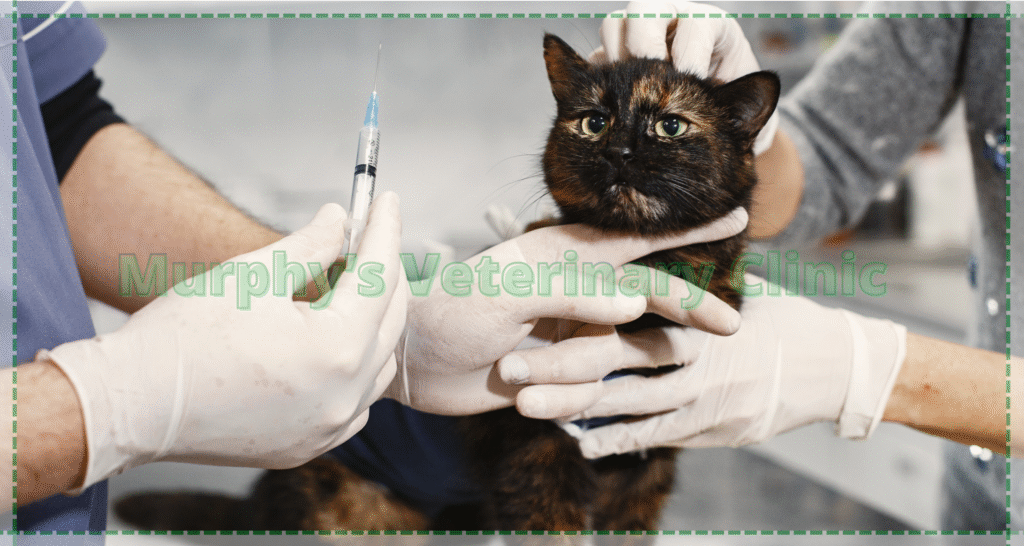Diseases & Treatments, Health & General Care, Vaccination & Prevention
Pet Health Check-up Schedule
Topics covered in this article:
- Pet Check-up for Pets Under 3 Years
- Pet Check-up for Pets Over 3 Years
- Importance of Regular Pet Check-up
- Check-up Frequency by Age
- Additional Factors in Pet Check-up
- Conclusion
Pet Health Check-up is one of the most essential practices for maintaining the overall well-being of companion animals. These routine examinations allow veterinarians to detect potential diseases and health concerns before they progress into severe conditions. Similar to humans, pets require periodic evaluations to ensure their vaccinations, nutrition, and general health are in balance. The importance of Pet Health Check-up varies depending on age, and it must be tailored to each life stage. For pets under three years of age, an annual visit is generally sufficient, but beyond this age, the frequency must increase. This systematic care contributes to longer life expectancy, prevention of chronic diseases, and improved quality of life. Moreover, Pet Check-up provides peace of mind for pet owners, knowing their companions are in good health. Ultimately, Pet Health Check-up is not only recommended but also vital.

Pet Check-up for Pets Under 3 Years
Pet Health Check-up for pets younger than three years is usually advised on an annual basis. During this growth phase, congenital or genetic disorders may become more apparent. Annual examinations allow veterinarians to assess growth, nutrition, vaccination status, and internal organ function. Dental health, parasite control, and behavioral assessments are also crucial in this age group. Pet Check-up at this stage plays a preventive role, ensuring that emerging problems are addressed before they escalate.
- Growth and weight monitoring
- Vaccination assessment
- Internal and external parasite control
- Behavioral health evaluation

Pet Check-up for Pets Over 3 Years
Once pets reach the age of three, Pet Health Check-up should be scheduled every six months. At this stage, the risk of developing chronic diseases such as renal, cardiac, and joint disorders increases. More frequent evaluations help with early detection of such conditions. Regular assessment of teeth, skin, and body weight becomes even more important. Pet Health Check-up also assists in adjusting dietary requirements and improving the pet’s lifestyle to prevent deterioration of health. These check-ups are critical in extending lifespan and maintaining overall vitality.
- Cardiac and renal evaluation
- Dental health assessment
- Weight and nutrition management
- Skin and coat examination

Importance of Regular Pet Check-up
Establishing a routine Pet Health Check-up schedule enables pet owners to ensure optimal well-being for their animals. Many diseases remain asymptomatic in their initial stages and can only be identified through proper veterinary examination. These visits often include both physical exams and laboratory diagnostics, offering a detailed overview of the pet’s condition. In addition, Pet Health Check-up provides an opportunity for behavioral, nutritional, and preventive healthcare consultations. Ultimately, consistent check-ups reduce long-term treatment costs and enhance the pet’s quality of life.
- Early disease detection
- Prevention of chronic conditions
- Reduction of medical expenses
- Improved life quality

Check-up Frequency by Age
The frequency of pet check-ups should be carefully adjusted according to the age and overall condition of the animal. Young pets, such as puppies and kittens, often require more frequent visits to monitor growth, administer vaccinations, and detect any developmental issues early. Adult pets generally benefit from regular but less frequent examinations that focus on preventive care, nutrition, dental health, and early detection of common illnesses. Senior pets, on the other hand, usually need more frequent check-ups again, as aging increases the risk of chronic diseases, joint problems, and other health concerns. By tailoring the examination schedule to these life stages, owners can ensure their pets receive the most appropriate level of medical attention at the right time. The following table outlines the general recommendations in a structured manner, helping owners plan a reliable healthcare routine and stay proactive in safeguarding the long-term well-being of their pets.
| Pet Age | Check-up Frequency | Key Focus Areas |
| Under 3 yrs | Once per year | Growth, vaccination, parasites |
| Over 3 yrs | Every 6 months | Heart, kidneys, teeth, weight |

Additional Factors in Pet Check-up
Apart from age, several other factors determine the necessity of Pet Health Check-up. Breed predispositions, lifestyle, diet, and medical history can all influence the frequency of visits. Breeds prone to genetic conditions may require closer monitoring. Similarly, pets that live outdoors are more exposed to parasites and infectious diseases. The table below summarizes some of these influencing factors.
| Influencing Factor | Description |
| Breed | Susceptibility to genetic disorders |
| Lifestyle | Indoor vs. outdoor living environment |
| Diet | Nutritional balance and supplementation |
| Medical History | Previous illnesses and treatments |
Conclusion
Pet Health Check-up is a critical routine for ensuring the longevity and wellness of pets. Depending on their age, pets require different levels of veterinary attention. Younger pets under three years should undergo an annual check-up, whereas pets over three years require examinations every six months. The benefits of Pet Check-up include disease prevention, early detection, reduced healthcare expenses, and improved overall health outcomes. Additionally, it offers guidance on nutrition, lifestyle, and behavioral needs. By adhering to a structured Pet Check-up schedule, owners can safeguard both the life span and quality of life of their animals. Therefore, Pet Check-up is not merely a recommendation but a necessity for responsible pet care.
Murphy’s Veterinary Clinic provides comprehensive Pet Health Check-up services using advanced diagnostic equipment and a team of experienced veterinarians. The clinic offers detailed physical exams, laboratory testing, nutritional guidance, and behavioral consultations. With Murphy’s Veterinary Clinic, pet owners can ensure a customized and reliable healthcare plan, tailored specifically to their pet’s age and medical needs.


